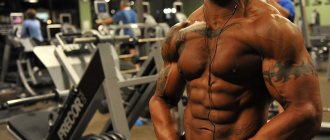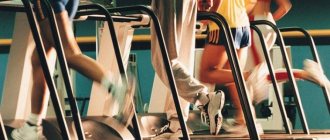Mikhail Bogomolov, psychoendocrinologist, answers :
— Daytime sleepiness, inability to concentrate, and subsequent depression are typical signs of chronic sleep deprivation. These are very harmful conditions. If this continues for a long time, the risk of many diseases increases significantly, this causes premature aging of the body. There are several reasons for this lack of sleep. This includes insomnia and the so-called obstructive sleep apnea syndrome (see help), usually associated with snoring. But in addition to these medical problems, many do not get enough sleep simply because they cannot properly organize their lives - work, everyday life, free time. This is what needs to be dealt with first.
Question and Answer Why do you always want to sleep in autumn and winter?
What's the best way to fall asleep?
- Take a walk before bed. If you can’t walk for half an hour, spend at least 10 minutes in the fresh air or stand on the balcony this time.
- Don't sleep in the afternoon , even if you really want to, it can interrupt your sleep. Under no circumstances sit down in a comfortable chair at this time, much less lie down. Try to somehow distract yourself, endure. After 15-30 minutes, the strong desire to sleep usually goes away.
- Sleep with the window slightly open - modern windows allow you to do this even without drafts.
— Have dinner no later than 2-3 hours before bedtime . Dinner should not be plentiful, and leave invigorating drinks and foods for the next day, in the morning. Before going to bed, only a glass of kefir, juice or some fruit is allowed.
- Do not fall asleep lying on your back, reading, watching TV . Get into the habit of falling asleep with your hands under your cheeks and turning on your right side.
- Fall asleep in complete darkness , without any light sources, even the smallest ones.
— The mattress and bed linen should be comfortable , there is no need to skimp on them.
— The air in the bedroom should not be too dry . During sleep, less saliva and secretions are produced to moisturize the mouth and airways. This is how our body works - remember, you often wake up with a dry mouth and are often bothered by thirst. If necessary, install a humidifier and temperature control regulators on the radiators.
Question answer
Is lack of sleep more harmful than hunger?
Part 3: Consolidating Success
In this block we will look at a few simple rules that will help you wake up in comfort and feel great throughout the day.
Turn on the light when you wake up
For final awakening, bright light is needed. As a rule, standard lighting in an apartment does not provide the required amount of bright light - so open the curtains in the morning. The brighter the light, the easier and faster you will wake up.
Don't set your alarm clock
Most people have this habit - in the evening they set 3-4 alarms with an interval of 10 minutes, and when they hear the alarm, turn it off and sleep until the next signal. If you also have this habit, be sure to get rid of it, since this method of waking up is a lot of stress for the body, which has to fall asleep and wake up many times. Moreover, it still won’t help you get enough sleep.
Get out in the sun more often
Sunlight regulates a person’s circadian rhythms, allowing them to switch from wakefulness to sleep. Try to get at least 30 minutes of sun exposure a day.
Go to bed at the same time
Train yourself to fall asleep and wake up at the same time every day. Thanks to this, the sleep-wake cycle is stabilized. Waking up late on weekends will not allow you to fall asleep at your usual time in the evening.
Don't force yourself to sleep
If you couldn't fall asleep within 20 minutes, don't force yourself. Better get up and read a book. Just don't turn on the TV or computer - this can only make the problem worse.
Reference
Obstructive sleep apnea syndrome (OSA) is a condition in which episodes of complete or partial blockage of the airways occur: their walls may collapse for a short time and not allow air to pass through. This happens because the pharyngeal muscles are relaxed during sleep and do not interfere with the collapse of the airways. There is a kind of cessation of breathing, usually lasting more than 10 seconds. Often after this the person wakes up, but not always. People with OSA experience more than 5 such episodes every hour during sleep. The condition occurs in 10-12% of people. The disease is usually associated with snoring. It occurs more often in people who are overweight and have a large neck size (in women more than 40 cm, in men more than 43 cm). OSA significantly increases the risk of developing hypertension, heart rhythm disturbances, heart attack, stroke, and even sudden death during sleep. Do not underestimate the danger - this condition requires treatment from a specialist, including the use of special devices that prevent the airways from collapsing during sleep, increasing the pressure in them.
Why do people sleep?
Sleep is not just a period of inactivity and loss of consciousness. At this time, intensive healing and rejuvenation occurs. When we fall asleep, it’s as if we find ourselves in a magical clinic where every cell is restored:
- When we go to bed, we synthesize melatonin. This hormone slows down aging and increases the body's defenses. It has antioxidant properties. In addition, it regulates the functioning of the endocrine system and strengthens the immune system.
- The brain processes the information received. “The morning is wiser than the evening,” so it’s easier to make the right decisions at dawn.
- Hormones necessary for cell growth, division, and regeneration are intensively produced. Tissues are renewed and restored.
- The production of collagen, a special protein responsible for the elasticity of the skin and blood vessels, increases.
- For hypothyroidism and those suffering from autoimmune thyroiditis, sleep is of particular importance. It is at night that substances that they so lack are produced.
If you sleep correctly, your body becomes younger and your life becomes longer.
What happens when you don't get enough sleep?
Lack of sleep leads to negative changes. They are noticeable after the first sleepless night. What does this mean:
- The course of chronic diseases is worsening.
- Appearance deteriorates and signs of aging worsen. Wrinkles become deeper and dark circles form under the eyes.
- Labor productivity decreases.
- Attention and reaction deteriorate.
- The concentration of ghrelin, the hunger hormone, increases. You start eating more. As a result, the well-known expression “it’s better to overeat than not sleep enough” takes on a very clear meaning.
- Without enough sleep, it is easier to get injured or get into an unpleasant situation.
- The production of endrophin, the hormone of joy, decreases. Such people are more susceptible to stress, their emotional background deteriorates, lethargy and tearfulness appear.
- Some people get migraines from poor sleep. It occurs from a lack or excess of night rest.
How to make your sleep more effective?
1. Sleep on your side
The ideal sleep is on your side. The supine position is harmful and promotes snoring. And in the position on the side, the brain is better cleansed of toxins - this way the lymph drains better, carrying toxic substances from the brain. This is a new discovery: the lymphatic system of the brain itself was discovered only 3 years ago; before, its existence was not suspected. It works better during sleep, but now it turns out that its activity also depends on the position of the body in bed. Since it is difficult to control the position during sleep, not everyone manages to spend almost all the time while sleeping on their side. Try this trick: sew a pocket with a clasp on your nightgown or pajamas between your shoulder blades and put a tennis ball in it.
Lie down in a pose. How to sleep to stay healthy
More details
2. Eat more at work
It is almost impossible for many to exclude a late dinner from their diet - the working day ends at 19.00, people arrive home so late that all that remains is to prepare food, eat it and go to bed. In such cases, it is better to eat at work or on the way from work. And at night drink a glass of kefir (without cookies!)
3. Say goodbye to lamps
Avoid even short exposure to light at night. When you sleep, be sure to turn off all lamps in the bedroom (even nightlights!), TV, computer, etc.
Article on the topic
"Owls" under duress? How to improve your sleep
4. Have a night out
Try to lengthen the night to 9-10 hours. Use shading lampshades in the bedroom, and cover the windows with blackout curtains to block out light from the street.
5. Eliminate strength training in the morning.
The best way to exercise to help you wake up is to do stretching exercises. You should do cardio fitness and strength exercises in the afternoon - ideally at 15-16 hours.
6. Turn off the computer and TV an hour before bedtime
Working with electronic devices inhibits melatonin production.
7. Get up with the sun, even if you went to bed late the night before
After just 1-2 days of this regime, going to bed early will no longer be a problem.
8. Get a foot massage or buy massage insoles
There are many active points on the sole; it is useful to stimulate them for tone.
Article on the topic
Night sleep companion. How to get rid of snoring?
9. Live at the rhythm of nature
Unfortunately, in modern conditions, the biorhythms of our body do not coincide with the natural rhythms that dictate the sunrise and sunset for us. About an hour before dawn, the human body undergoes major biochemical changes that should provide energy to start the day. This also results in the release of hormones, a number of which increase blood pressure and cause the heart to contract faster (because of this, heart attacks and strokes occur more often in the morning). But unlike our ancestors, we do not wake up, but spend these hours sleeping. If we got up and went outside, as people have done from time immemorial, then the negative effect of the shifts would be weakened. The energy of glucose and hormones would be directed in a peaceful direction: sugar would be absorbed by the muscles, and not converted into fat, as happens during sleep, and hormones would help the body get back to work. In addition, the solar spectrum at sunrise gives optimism.
10. Don't eat breakfast right after waking up
Let your body come to its senses. It is ideal to have breakfast after a short walk (for example, with a dog in the park or with a child before kindergarten) or exercise.
11. Choose red
If you get up at night, light your toilet and bathroom with dim red light, which is less melatonin-suppressing than white or blue light.
Hidden deficit. How can you tell if you're not getting enough sleep?
More like
What advice can you give to people who work at night?
Irina Zavalko (neurologist-somnologist):
In the evening, before duty, you can sleep in order to be alert and active during the shift. After work, you need to return without being exposed to sunlight, that is, covering yourself with dark glasses or, if possible, not going outside at all. You can get some sleep at home and then go to sleep earlier or at your usual time at night. More often, the option is chosen when a person waits until the evening, goes to bed earlier and sleeps longer at night. If a person always works at night, then he can always sleep at some other time, for example, from morning until lunch or, conversely, before his working day, from the evening before the start of his work shift.
Vladimir Dorokhov:
The most important advice is not to do this, do not work at night! However, certain gene variants make night shifts easier for some people. In fact, they are the ones who work at night. But in any case, working long night shifts definitely shortens life. The place to sleep during the day, as well as for sleeping at night, should be comfortable. The room is darkened, noise-free, ventilated, with an air temperature below 20 degrees.
Roman Buzunov (President of the Russian Society of Somnologists):
Do not drink alcohol the day before your shift. During the night shift, it is advisable to eat only light food in small quantities. If you drink coffee or strong tea, do it only in the first half of the night, and stop taking them 6 hours before the end of your shift. During the night shift, drink water (0.7-1 liters per night). This helps prevent dehydration, which can worsen the effects of disrupted circadian rhythms. After a shift, if it’s far from home, it’s better to get there by transport, otherwise, firstly, you will lose time that you could spend on sleep, and secondly, due to fast walking you will become energized and may not want to sleep at home.
I am my own diagnostician. How to understand whether you are getting enough sleep or not?
To understand whether you sleep well or not, fill out this questionnaire. It is typically used to assess sleep disturbance in patients suspected of having obstructive sleep apnea, but is also suitable for general assessment of sleep quality.
Answer how you will feel in the following situations, will you fall asleep or fall asleep? Select the number that corresponds to your possible behavior in such cases:
0 - I will never fall asleep 1 - low chance of falling asleep 2 - moderate chance of falling asleep 3 - high chance of falling asleep
Situation:
Article on the topic
Morpheus does not let go... How to deal with constant drowsiness?
1. Reading while sitting in a chair
2. Watching TV while sitting in a chair
3. Passive sitting in public places (theater, meeting, etc.)
4. You are a passenger in a car, the trip on a flat road lasts at least an hour
5. If you just lay down to rest after lunch because you don’t have any important things to do
6. You are sitting and talking to someone
7. Sit in a chair after breakfast in a quiet room (no alcohol was taken)
8. You are driving a car and are stuck in a traffic jam for several minutes.
How to decipher the test:
Normal - 0-5 points Initial stage of lack of sleep - 6-8 Moderate phenomena - 9-12 Severe lack of sleep, it's time to sound the alarm - 13-18 Extreme degree - 19 or more
What foods help you get enough sleep?
Carbohydrates have a positive effect on deep and sound sleep. A glass of milk with a spoon of honey before bed will calm you down and relieve nervous tension. The intake of nutrients helps reduce the activity of nerve cells and begin to prepare the body for sleep.
Vitamins B3 and B6 influence good sleep. The required amount of daily vitamin B3 is contained in a couple of slices of rye bread and a few slices of cheese. To replenish vitamin B6, it is enough to eat a salad or a small piece of liver or beef.
Eating almonds will compensate for the lack of calcium and magnesium. Amino acids that affect the depth of sleep can be obtained by starting to eat dates, bananas or dried fruits.
For insomnia, it is recommended to eat eggs, fish products, oatmeal, dairy products, cherries, cherries, and honey.
Why do you need to sleep in complete darkness?
There are studies showing that you should sleep in complete darkness at night. Night work and light at night disrupt the body's rhythms and contribute to the development of certain types of cancer. Vladimir Anisimov, Corresponding Member of the Russian Academy of Sciences, Doctor of Medical Sciences, Head of the Department of Carcinogenesis and Oncogerontology, Research Institute of Oncology named after . Petrova in St. Petersburg :
Article on the topic
Sleepy kingdom. How to choose a comfortable mattress?
- Studies have shown that women who frequently turn on the bedroom light at night have an increased risk of breast cancer. And the longer such lighting works, the higher the likelihood of developing this disease. Shift work has the same negative effect. In people who have worked at night for more than 30 years, this type of cancer is 2.2 times more likely. But men also suffer from shift work: if they work at least 3 nights a month, they are more likely to develop prostate cancer. Plus, night light increases the risk of malignant tumors of the colon and rectum. And the risks of obesity, metabolic syndrome, coronary heart disease, and peptic ulcers also increase significantly. All this is associated with a violation of the body’s daily (circadian) rhythms. Light at night suppresses the production of the hormone melatonin, which has many beneficial effects, including protection against cancer. In the dark, more melatonin is produced. Therefore, you need to try to observe the natural pattern of day and night as much as possible. And it’s better that shift work is not lifelong: after working for 10 years, try to change it.
Food preferences
Eat less, but more often . So, firstly, less energy will be used to support digestion processes. Secondly, the body itself will receive nourishment more often.
Avoid sugar and sweets . So-called fast carbohydrates cause an increase in insulin levels in the blood, which can cause a feeling of fatigue.
Give preference to whole grain products . Complex carbohydrates take longer to be processed by the body and, accordingly, provide it with energy for longer, allowing you to feel more energetic.
Eat lean meat and fish . They do not increase blood sugar, which ensures a smooth flow of energy, and the feeling of fullness lasts longer.
Eat mint . Try replacing coffee with mint tea, it's quite refreshing. Mint chewing gum will also be useful in concentrating attention and increasing efficiency.
Don't forget about vitamins . To stay cheerful and energetic throughout the day, you need to take care of getting the right amount of vitamins into your body. Especially C, D, thiamine, riboflavin, B12, as well as pantothenic and folic acid. Some products suitable for such purposes and their properties are described in this article.
Drink plenty of water . Dehydration leads to decreased blood volume and, as a result, constant fatigue. It is also beneficial for normal metabolism and the release of energy from food.
Choose herbal supplements . Many people claim that, like mint, ginseng, eleutherococcus, lemongrass, and mate are good invigorators. Use not dietary supplements, but the product itself.
How to get enough sleep in 3 hours and be alert all day?
Two hours may be enough to restore strength. Whether you will be able to maintain cheerfulness for a long time depends on your internal reserves and emotional mood.
Regularly adhering to such a regime is not the best idea, although history knows many inspiring examples. Many great people did not allow themselves to relax, but remained highly productive.
Last summer I visited Stalin's dacha in Matsesta. The guide told how the leader of the world proletariat slept. 4 hours was enough for him. After this, Joseph Vissarionovich continued to work. Looking at his modest bed, for some reason this fact did not cause surprise.
Another example is the founder of the Roman Empire, Gaius Julius Caesar. To realize his plan, he slept no more than 3 hours. (often right on the ground in the open air).
It seems unrealistic, but it is quite possible to gain vigor after sleeping for 3-4 hours. The “slow” phase lasts an hour and a half. It is replaced by the REM sleep phase. If after 2-3 cycles a person opens his eyes, he will feel completely rested.
The creator of Mona Lisa adhered to his own technique. She allowed him to work fruitfully day and night. The artist rested every 2 hours for 15-20 minutes.
Nikola Tesla, Thomas Edison, Salvador Dali... They all believed that sleeping was a waste of time. Maybe that's why they managed to do so much. We can only hope that doctors will invent a magic pill that will replace sleep and allow you to do the things you love for longer









